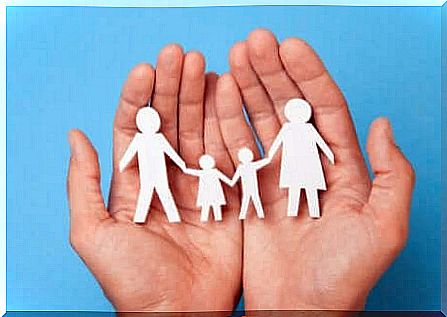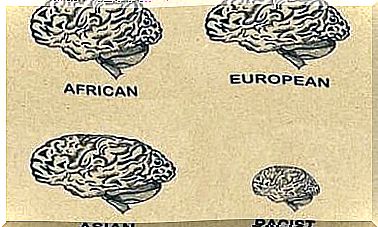Family Myths And Their Effects

Family myths are fictitious beliefs and hopes shared by an entire family. These beliefs have to do with the family itself and the ties that bind it together. They are assimilated to “truths” and determine the individual and collective behavior of this human group. They also determine the roles of each.
Usually, family myths are preconscious. That is to say, they are at the border between the conscious and the unconscious. This means that the family admits to having certain beliefs, but it is not known to what extent they hold them, or why these ideas are considered valid.
Although family myths are defined as fictitious beliefs, behind them almost always lie painful or intolerable truths for the family. In general, the clues to these myths are found in the secret or implicit rules that each family group implements within it.

Characteristics of family myths
One of the characteristics of family myths is that they take shape mainly in the assignment of roles within the family. These beliefs define who is “the black sheep” and who is the “role model”, and so on.
Usually there is a strong resistance to change. In some cases, it even becomes a taboo subject. The other characteristics of these myths are as follows:
- They shape intra-family relationships.
- They represent the image that the family has of itself.
- There is strong resistance to any attempt to change beliefs.
- They fulfill the role of concealing a reality that the family refuses to accept.
- They always have a basis of truth.
- These myths are passed down from generation to generation.
- They are present in all families, to a greater or lesser extent.
- They represent how the family relates to culture.
These myths are basically of three types. There are the myths around harmony, apology and reparation and those around salvation.
Myths around harmony
The myths around harmony refer to these families who build an idyllic image of themselves. They develop a whole series of behaviors to convince themselves that balance, unity and fraternity prevail among all members. It is as if within this family group there were no problems.
In general, this type of family builds this image in front of others. There is a guilt that we try to hide: the idea of perfect harmony serves as a means not to be judged by others. In fact, depression and boredom characterize these family groups, as well as strong unresolved hostilities.
Apologies and reparations
The myths around apologies and reparations are a bit more complex, as they involve further elaboration. In this case, the responsibility for family problems lies with one or more people. These people can be alive or dead. It can even be a person outside the family, but who is related to it.
The most obvious example is that of the “scapegoat”. Anyone in this role is blamed for what does not work well or for existing problems. This relieves other family members of their responsibilities. What works in this case is basically a collective projection mechanism.

Family myths around salvation
The family myths around salvation are present involve the construction of the figure of the “mythical savior”. He is a character from whom we expect a redemptive intervention, either in the face of a specific problem or in the face of difficulties in general. The savior is believed to have the power to bring in what is needed or to unlock what is not working.
The figure of the mythical savior can be embodied by any member of the family, but it can also be embodied by someone from outside. Usually, family groups assign this role to the psychologist when they are in a therapy process.
The more pathological family relationships, the more frequently these myths tend to appear and consolidate. This is not the right way to approach the issues that need to be updated and fixed.










